Throughout the month of February, our Berkeley NABJ Chapter is celebrating the achievements of Black people and their noteworthy contributions to the field of journalism.
February 25
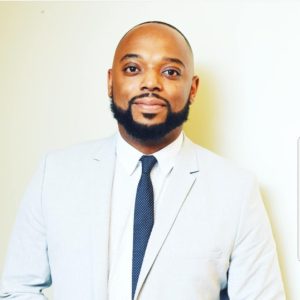
February 23
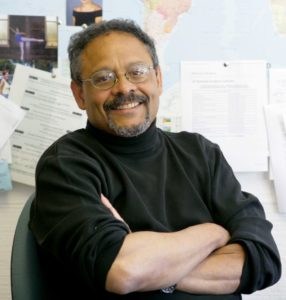
Some of his notable work includes The Black Dispatch, a 1983 series in the Washington Post Magazine in which he worked as a migrant laborer, and the following excerpts from his two books “Pearl’s Secret” and “American Carnival: Journalism Under Siege in an Age of New Media.” Other pieces include A Stranger in Africa, Who Is Killing the Children of Africa?, and Tourists in ‘Wawa’ Land.
February 22
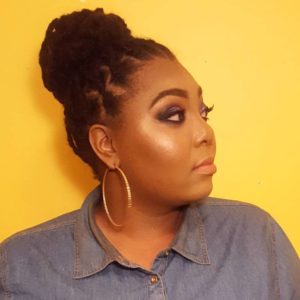
February 19
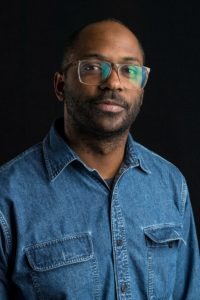
February 18
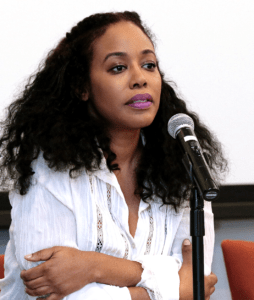
Sabrina’s directing debut was the Emmy-nominated BaddDDD Sonia Sanchez, which she co-directed, co-produced, and edited, winning the Best Film Directed by a Woman of Color award at the African Diaspora International Film Festival in 2016. She is also the co-producer and editor of Documented, the story of Pulitzer Prize-winning undocumented journalist Jose Antonio Vargas. The film had record viewership on CNN and was nominated for the NAACP Image Award for Best Documentary Film. Other credits include her first feature, Hip-Hop: Beyond Beats and Rhymes, which she produced and edited, and debuted at Sundance.
February 17
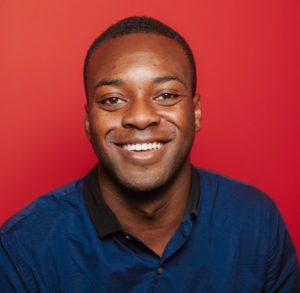
Emmanuel Dzotsi is an audio reporter and producer who has worked on shows like Reply All, This American Life, and Serial. His three-part series–The Real Enemy–was a revealing investigation that explored years of self-sabotage within the Alabama Democratic Party. His more recent work on Season 3 of Serial takes a critical look at the criminal justice system by following the cases of a single courthouse in Cleveland, OH, week by week.
February 16
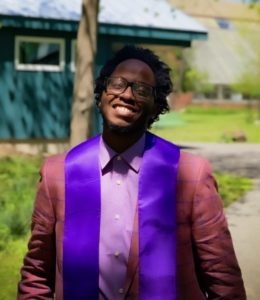 Edward Ongweso Jr. is a New York City based reporter covering labor and technology for Motherboard, VICE News’s technology section. Most of his work has focused on app-based gig labor platforms, antitrust and antimonopoly law, labor movements, capital markets, and surveillance technologies. He’s also the co-host of a weekly podcast on technology and political economy: This Machine Kills.
Edward Ongweso Jr. is a New York City based reporter covering labor and technology for Motherboard, VICE News’s technology section. Most of his work has focused on app-based gig labor platforms, antitrust and antimonopoly law, labor movements, capital markets, and surveillance technologies. He’s also the co-host of a weekly podcast on technology and political economy: This Machine Kills.
February 15
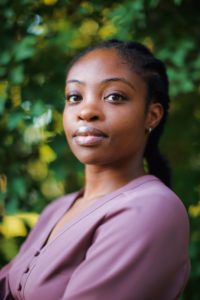 Patience Zalanga is a freelance photographer from Minneapolis-St. Paul, Minnesota. In recent years, her work has focused on American social movements and uprisings. Patience began documenting the Twin Cities during protests after the police killing of Philando Castile. Her work has been featured in TIME, The New York Times, Minnesota Public Radio, and other publications. When Patience is not freelancing, she works part-time at a homeless shelter in South Minneapolis.
Patience Zalanga is a freelance photographer from Minneapolis-St. Paul, Minnesota. In recent years, her work has focused on American social movements and uprisings. Patience began documenting the Twin Cities during protests after the police killing of Philando Castile. Her work has been featured in TIME, The New York Times, Minnesota Public Radio, and other publications. When Patience is not freelancing, she works part-time at a homeless shelter in South Minneapolis.
February 14
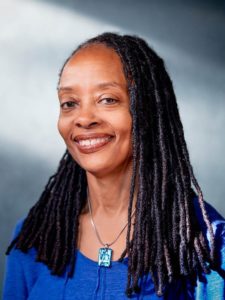 Valerie Boyd (December 11, 1963 – February 12, 2022) was a journalist, writer, and academic, best known for her biography of Zora Neale Hurston “Wrapped in Rainbows: The Life of Zora Neale Hurston.”
Valerie Boyd (December 11, 1963 – February 12, 2022) was a journalist, writer, and academic, best known for her biography of Zora Neale Hurston “Wrapped in Rainbows: The Life of Zora Neale Hurston.”
As an accomplished journalist, Boyd enjoyed a lengthy career at the Atlanta Journal-Constitution. She began as a copy editor in 1985, worked over the years as a reporter, book critic, and line editor, and became Arts Editor in 2001, a position she held until leaving the newspaper in 2004. Boyd’s articles, essays, and reviews also appeared in The Journal of Blacks in Higher Education, Ms., Paste, The Oxford American, Book, Essence, The Washington Post, The Los Angeles Times, Creative Nonfiction, African American Review, and other publications.
After turning to teaching, Boyd became the founder and director of the MFA Program in Narrative Nonfiction and the Charlayne Hunter-Gault Distinguished Writer in Residence at the University of Georgia. She was also editor-at-large at the University of Georgia Press and senior consulting editor for The Bitter Southerner.
February 11
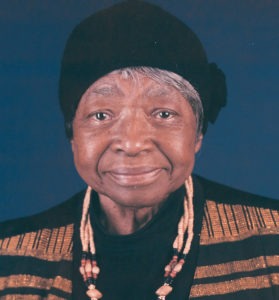 Madeline Anderson (born ca. 1923) is an American filmmaker, television and documentary producer, film director, editor, and screenwriter. She is best known for her films Integration Report One (1960), and I Am Somebody (1970), the latter of which garnered national and international acclaim. In 2015, the National Museum of African American History and Culture officially recognized Integration Report One as the first documentary film to be directed by a Black woman. Anderson also became the first Black woman to executive produce a nationally aired television series, a 1977 PBS educational series titled Infinity Factory.
Madeline Anderson (born ca. 1923) is an American filmmaker, television and documentary producer, film director, editor, and screenwriter. She is best known for her films Integration Report One (1960), and I Am Somebody (1970), the latter of which garnered national and international acclaim. In 2015, the National Museum of African American History and Culture officially recognized Integration Report One as the first documentary film to be directed by a Black woman. Anderson also became the first Black woman to executive produce a nationally aired television series, a 1977 PBS educational series titled Infinity Factory.
February 9
 André Leon Talley (October 16, 1948 – January 18, 2022) was an American fashion journalist, stylist, creative director, and editor-at-large of Vogue magazine. He earned his Bachelor of Arts in French Literature from North Carolina Central University and his Master of Arts degree in French Literature from Brown University. Talley was Vogue’s fashion news director from 1983 to 1987, and then its first Black male creative director from 1988 to 1995. As a Black Queer man, he was a champion of diversity in the fashion industry.
André Leon Talley (October 16, 1948 – January 18, 2022) was an American fashion journalist, stylist, creative director, and editor-at-large of Vogue magazine. He earned his Bachelor of Arts in French Literature from North Carolina Central University and his Master of Arts degree in French Literature from Brown University. Talley was Vogue’s fashion news director from 1983 to 1987, and then its first Black male creative director from 1988 to 1995. As a Black Queer man, he was a champion of diversity in the fashion industry.
He also authored three books, including the memoir The Chiffon Trenches, which landed on The New York Times Best Seller list, and co-authored a book with Richard Bernstein. Talley also worked as a stylist for former United States President Barack Obama and former First Lady Michelle Obama. In 2021, France awarded him the Chevalier de l’Ordre des Arts et des Lettres honor for arts and letters.
“He’d rhapsodize about the elegance of a plain white Hanes T-shirt with the same fervor as he did an Oscar de la Renta gown.” shared Talley’s close friend Kimora Lee Simmons, in a recent tribute in Ebony magazine.
February 8
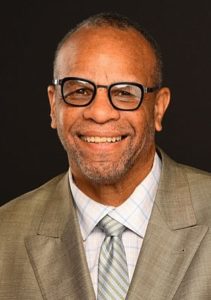 William Rhoden is a native of Chicago, Illinois. Rhoden is an alumnus of Morgan State University, where he graduated in 1973. He has worked for publications such as the Afro-American Times, the Baltimore Sun, Ebony magazine, and the New York Times. Rhoden wrote two critically acclaimed books: Forty Million Dollar Slaves: The Rise, Fall and Redemption of the Black Athlete, and Third and A Mile: The Trials and Triumphs of The Black Quarterback and is now editor-at-large for The Undefeated, ESPN’s platform covering all things race, culture, and sports. Rhoden then established a fellowship in collaboration with ESPN and the Undefeated, identifying and training aspiring journalists from HBCUs in a one-year program.
William Rhoden is a native of Chicago, Illinois. Rhoden is an alumnus of Morgan State University, where he graduated in 1973. He has worked for publications such as the Afro-American Times, the Baltimore Sun, Ebony magazine, and the New York Times. Rhoden wrote two critically acclaimed books: Forty Million Dollar Slaves: The Rise, Fall and Redemption of the Black Athlete, and Third and A Mile: The Trials and Triumphs of The Black Quarterback and is now editor-at-large for The Undefeated, ESPN’s platform covering all things race, culture, and sports. Rhoden then established a fellowship in collaboration with ESPN and the Undefeated, identifying and training aspiring journalists from HBCUs in a one-year program.
February 7
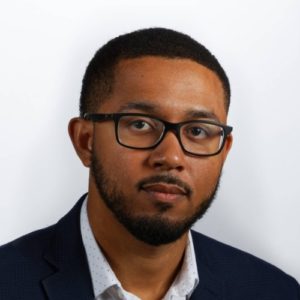 Alex Nieves is an alum of the J-school and is a cannabis/policy reporter for POLITICO’s California bureau. He’s also been a news fellow for Sports Illustrated.
Alex Nieves is an alum of the J-school and is a cannabis/policy reporter for POLITICO’s California bureau. He’s also been a news fellow for Sports Illustrated.
February 5
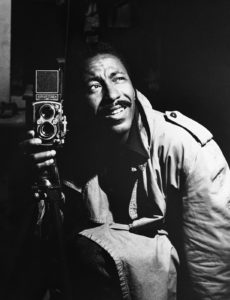 Gordon Parks (November 30, 1912 – March 7, 2006) was a photographer, musician, writer, and film director, who became prominent in U.S. documentary photojournalism in the 1940s through 1970s—particularly in issues of civil rights, poverty, and Black-Americans—and in glamour photography.
Gordon Parks (November 30, 1912 – March 7, 2006) was a photographer, musician, writer, and film director, who became prominent in U.S. documentary photojournalism in the 1940s through 1970s—particularly in issues of civil rights, poverty, and Black-Americans—and in glamour photography.
February 4
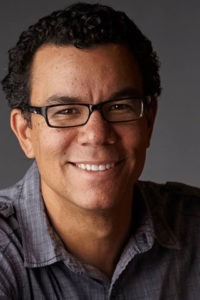 Peter Nicks is an Emmy Award-winning cinematographer, producer, and director. He produced and directed three documentaries about Oakland, CA. THE WAITING ROOM won an Independent Spirit Award and was shortlisted for an Academy Award in 2012. THE FORCE, exploring the interconnected narratives of health care, criminal justice, and education in Oakland, won the 2017 Sundance Directing Prize. HOMEROOM, the final film in the trilogy, won the inaugural Jonathan Oppenheim Editing Award at the 2021 Sundance Film Festival.
Peter Nicks is an Emmy Award-winning cinematographer, producer, and director. He produced and directed three documentaries about Oakland, CA. THE WAITING ROOM won an Independent Spirit Award and was shortlisted for an Academy Award in 2012. THE FORCE, exploring the interconnected narratives of health care, criminal justice, and education in Oakland, won the 2017 Sundance Directing Prize. HOMEROOM, the final film in the trilogy, won the inaugural Jonathan Oppenheim Editing Award at the 2021 Sundance Film Festival.
Nicks is also a co-founder of Proximity Media with fellow Oakland-based filmmaker Ryan Coogler and overseas the nonfiction division. He received his Bachelor’s of Arts in English from Howard University and his Master’s in Journalism from UC Berkeley.
February 3
 Les and Tamara Payne are authors of The Dead Are Arising: The Life of Malcolm X. The late Mr. Payne was a Pulitzer Prize winning investigative journalist and editor of Newsday as well as a founder of NABJ. His daughter Tamara was his principal researcher for the book and brought it to completion after his unexpected passing. A virtual guest speaker at the UCBSOJ last year, she plans to revisit our students again this year in March.
Les and Tamara Payne are authors of The Dead Are Arising: The Life of Malcolm X. The late Mr. Payne was a Pulitzer Prize winning investigative journalist and editor of Newsday as well as a founder of NABJ. His daughter Tamara was his principal researcher for the book and brought it to completion after his unexpected passing. A virtual guest speaker at the UCBSOJ last year, she plans to revisit our students again this year in March.
February 2
 Marlon Troy Riggs (February 3, 1957 – April 5, 1994) was an American filmmaker, educator, poet, and gay rights activist. He produced, wrote, and directed several documentary films, including Ethnic Notions, Tongues Untied, Color Adjustment and Black Is…Black Ain’t. His films examine past and present representations of race and sexuality in the United States.
Marlon Troy Riggs (February 3, 1957 – April 5, 1994) was an American filmmaker, educator, poet, and gay rights activist. He produced, wrote, and directed several documentary films, including Ethnic Notions, Tongues Untied, Color Adjustment and Black Is…Black Ain’t. His films examine past and present representations of race and sexuality in the United States.
Born in Ft. Worth, Texas, Riggs graduated magna cum laude from Harvard and received his master’s degree in journalism from the University of California, Berkeley. He became the youngest tenured professor at the Graduate School of Journalism.
Each year in his honor a student is awarded the Marlon T. Riggs Fellowship in Documentary Filmmaking. This year’s awardee is Producer/Director Bashirah Mack (‘22).
